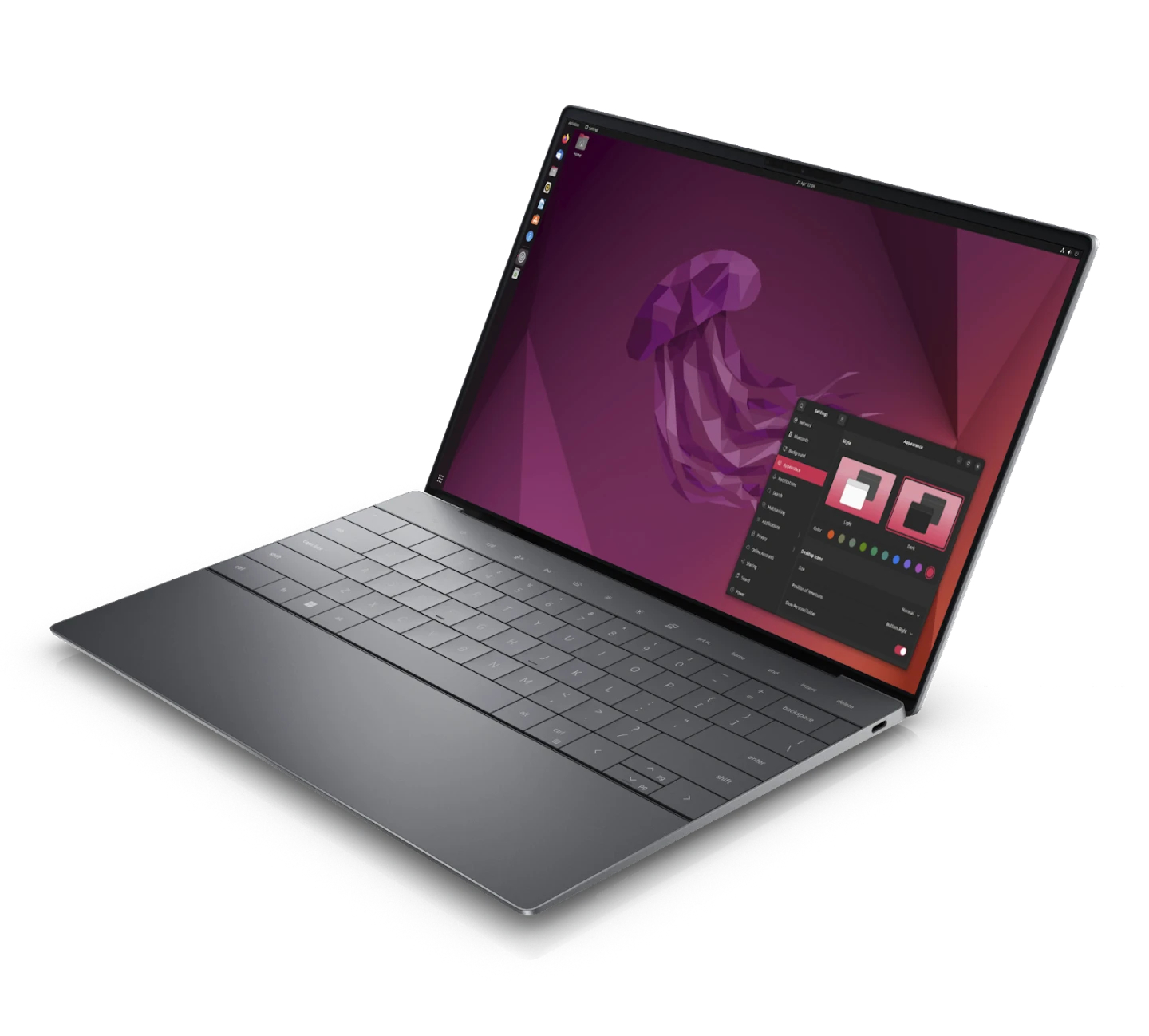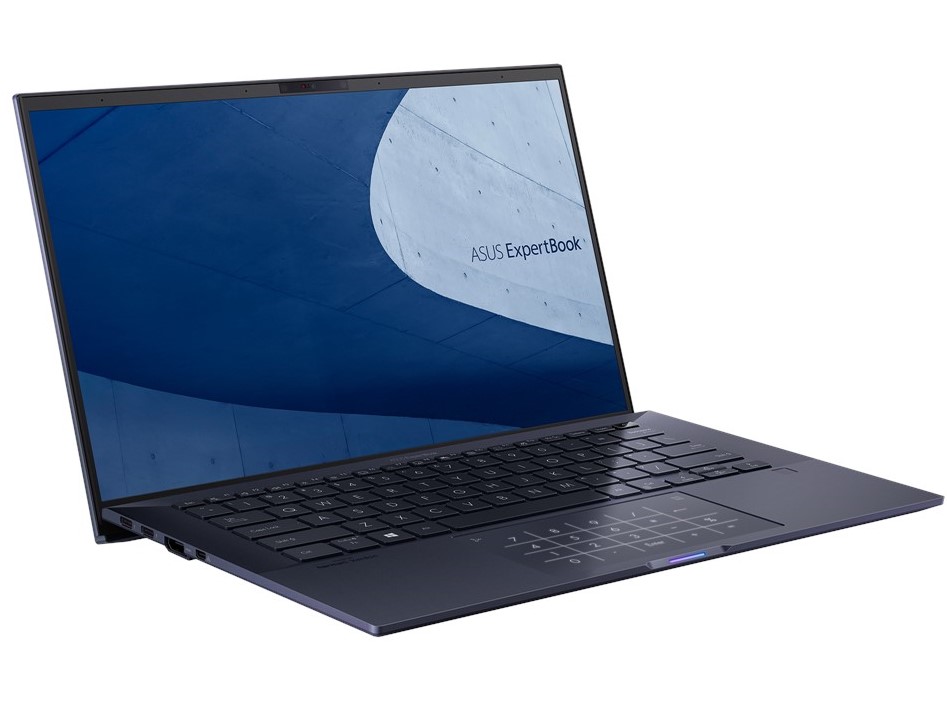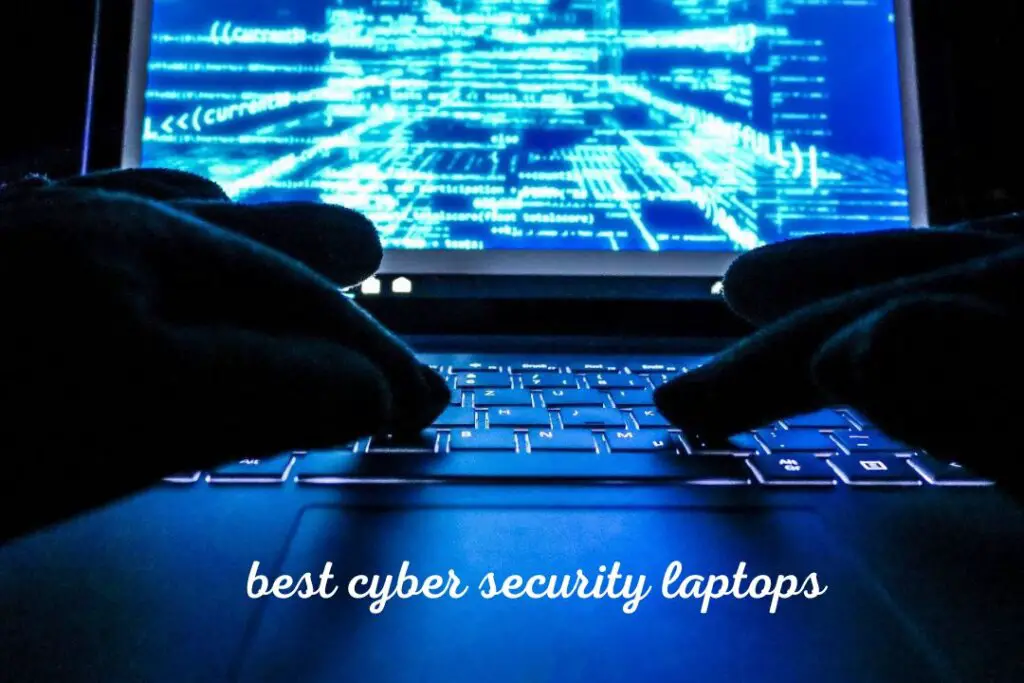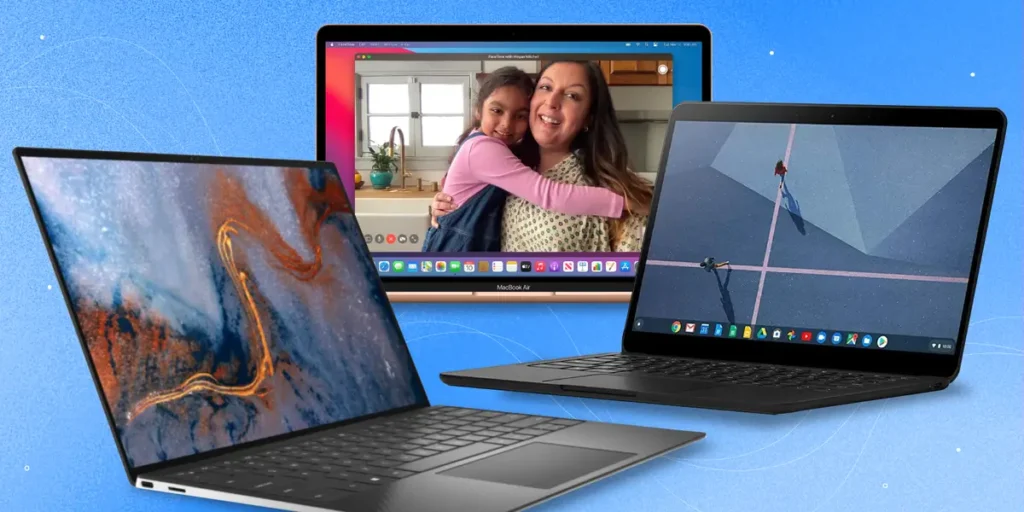Cybersecurity is a critical concern in today’s digital age, and having a secure laptop is essential for protecting your data and privacy. However, not all laptops are created equal when it comes to cybersecurity features. In this article, we’ll explore the best cyber security laptops that provide both strong protection and high performance.
I. Introduction
Importance of cybersecurity in laptops
- Brief overview of the article
- Thesis statement
In today’s digital age, cybersecurity has become a critical concern for individuals and businesses alike. With the increasing number of cyber threats and data breaches, it has become essential to have a secure laptop that can protect your sensitive information and privacy. In this article, we will discuss the top picks for cyber security laptops that provide both strong protection and high performance.
We will explore the security features of each laptop and how they can protect your data. By the end of this article, readers will have a better understanding of the importance of cybersecurity in laptops and the best options available in the market. The thesis statement of this article is that choosing the right laptop with robust security features is crucial for protecting your data and privacy in the digital world.
II. Key Features to Look for in a best Cyber Security Laptops
Definition of cybersecurity
The importance of software updates
Strong password protection
Two-factor authentication
Hardware security features
Built-in encryption
Cybersecurity refers to the protection of digital devices, networks, and sensitive information from unauthorized access, theft, and damage. When it comes to laptops, there are several key features to look for to ensure strong cybersecurity.
First and foremost, software updates are crucial. Regularly updating your laptop’s operating system and security software helps to patch vulnerabilities and protect against newly discovered threats.
Strong password protection is also essential. A strong password should be unique, complex, and not easily guessable. Consider using a password manager to generate and store strong passwords.
Two-factor authentication adds an extra layer of security by requiring a second form of verification, such as a fingerprint or a text message code, to log in.
Hardware security features, such as a built-in webcam cover or fingerprint reader, can prevent unauthorized access to your laptop and personal information.
Lastly, built-in encryption can protect your sensitive data by converting it into a code that can only be read with a decryption key. Look for laptops with hardware-based encryption for added security.
By prioritizing these key features, you can ensure that your laptop is equipped with strong cybersecurity measures to protect your data and privacy.
III. Top Cyber Security Laptops
- MacBook Pro
- Overview
- Cybersecurity features
- Pros and cons
- Dell XPS 13
- Overview
- Cybersecurity features
- Pros and cons
- HP Elite Dragonfly
- Overview
- Cybersecurity features
- Pros and cons
- Lenovo ThinkPad X1 Carbon
- Overview
- Cybersecurity features
- Pros and cons
- ASUS ExpertBook B9
- Overview
- Cybersecurity features
- Pros and cons
When it comes to cybersecurity, not all laptops are created equal. We’ve rounded up some of the top cyber security laptops on the market, each with their own unique features and benefits.
MacBook Pro

Overview:
- The MacBook Pro is a popular choice for professionals, thanks to its sleek design and powerful performance. It runs on the MacOS operating system and is known for its ease of use.
Cybersecurity features:
The MacBook Pro has several built-in security features, including Touch ID for secure logins and payments, a T2 Security Chip for hardware-based encryption, and FileVault for encrypting your hard drive.
Pros and cons:
Pros of the MacBook Pro include its powerful performance, easy-to-use interface, and strong built-in security features. However, it can be quite expensive compared to other laptops, and it may not be the best choice for those who prefer Windows or Linux operating systems.
Dell XPS 13

Overview:
- The Dell XPS 13 is a popular ultrabook that is known for its sleek design and powerful performance. It runs on the Windows 10 operating system and is a popular choice for both personal and professional use.
Cybersecurity features:
The Dell XPS 13 has several built-in security features, including Windows Hello for secure logins and facial recognition, a fingerprint reader, and Intel hardware-based encryption.
Pros and cons:
Pros of the Dell XPS 13 include its powerful performance, sleek design, and strong built-in security features. However, it can also be quite expensive, and some users have reported issues with the webcam placement.
HP Elite Dragonfly

Overview:
- The HP Elite Dragonfly is a lightweight and portable laptop that is designed for business professionals. It runs on the Windows 10 operating system and is known for its strong performance and long battery life.
Cybersecurity features:
The HP Elite Dragonfly has several built-in security features, including Windows Hello for secure logins and facial recognition, a fingerprint reader, and HP Sure View for privacy screen protection.
Pros and cons:
Pros of the HP Elite Dragonfly include its lightweight and portable design, strong performance, and excellent battery life. However, it can be quite expensive compared to other laptops, and some users have reported issues with the touchpad.
POST YOU MAY LIKE:
15 Best Laptops For Medical Billing And Coding In 2023
Best Laptop For Network Engineer(Best For Your Needs)
Lenovo ThinkPad X1 Carbon

Overview:
- The Lenovo ThinkPad X1 Carbon is a popular business laptop that is known for its durability and performance. It runs on the Windows 10 operating system and is a popular choice for professionals who need a reliable and secure laptop.
Cybersecurity features:
The Lenovo ThinkPad X1 Carbon has several built-in security features, including a fingerprint reader, Windows Hello for secure logins and facial recognition, and a physical camera cover.
Pros and cons:
Pros of the Lenovo ThinkPad X1 Carbon include its durability, strong performance, and reliable built-in security features. However, it can be quite expensive, and some users have reported issues with the touchpad.
ASUS ExpertBook B9

Overview:
- The ASUS ExpertBook B9 is a lightweight and portable laptop that is designed for business professionals. It runs on the Windows 10 operating system and is known for its strong performance and long battery life.
Cybersecurity features:
The ASUS ExpertBook B9 has several built-in security features, including a fingerprint reader, a TPM 2.0 chip for hardware-based encryption, and a webcam shutter.
Pros and cons:
Pros of the ASUS ExpertBook B9 include its lightweight and portable design, strong performance, and reliable built-in security features. However, it can be quite expensive compared to other laptops, and some users have reported issues with the display.
Overall, each of these laptops offers strong cybersecurity features to protect your sensitive information and privacy. When choosing a cyber security laptop, it is important to consider your specific needs and preferences, as well as your budget. Other factors to consider when choosing a cyber security laptop include the level of customer support offered by the manufacturer, the quality of the keyboard and touchpad, and the size and weight of the laptop.
It’s also important to keep in mind that while these laptops offer strong built-in security features, it’s still important to practice good cybersecurity habits, such as using strong passwords, avoiding public Wi-Fi networks, and keeping your software and security systems up-to-date.
In addition to the laptops mentioned above, there are many other cyber security laptops on the market that offer strong protection and performance. Some other notable options include the Microsoft Surface Laptop 4, the Acer Swift 5, and the HP Spectre x360.
Ultimately, choosing the right cyber security laptop depends on your individual needs and priorities. By considering the features and benefits of each of these top cyber security laptops, you can make an informed decision and select a laptop that provides both strong protection and high performance.
IV. How to Choose the Right Cyber Security Laptop for You
- Factors to consider when choosing a laptop
- Your specific needs and preferences
- Budget considerations
When it comes to choosing the right cyber security laptop, there are several factors to consider. First and foremost, it’s important to assess your individual needs and preferences. Are you looking for a laptop that’s lightweight and easy to carry around, or do you prioritize a larger screen size for work or entertainment purposes? Do you need a laptop with a long battery life, or are you willing to sacrifice battery life for stronger security features?
Another important consideration is your budget. While some high-end laptops offer top-of-the-line security features, they may also come with a hefty price tag. However, there are also more affordable options that still offer strong protection and performance.
Ultimately, by taking the time to consider your needs and budget, as well as the features and benefits of different cyber security laptops, you can make an informed decision and choose a laptop that meets your specific needs while also providing strong protection against cyber threats.
V. Frequently Asked Questions
- What is the difference between software and hardware security?
- Do I need to buy additional software for my cyber security laptop?
- Is it necessary to enable automatic software updates on my laptop?
- Can I use a virtual private network (VPN) with my cyber security laptop?
- How often should I update my passwords on my laptop?
- What is two-factor authentication and how does it work?
What is the difference between software and hardware security?
- Software security refers to the protection provided by programs and applications on your computer. This can include anti-virus software, firewalls, and other tools that help prevent and detect cyber threats. Hardware security, on the other hand, refers to the physical components of your computer that help protect against unauthorised access and other security risks. This can include features like biometric authentication (such as fingerprint or facial recognition), secure boot processes, and built-in encryption.
Do I need to buy additional software for my cyber security laptop?
- Many cyber security laptops come with built-in security features, such as firewalls, anti-virus software, and encryption tools. However, depending on your individual needs and preferences, you may choose to purchase additional software to supplement these built-in features. For example, you may opt to use a third-party VPN or password manager to further enhance your security.
Is it necessary to enable automatic software updates on my laptop?
- Yes, it’s highly recommended to enable automatic software updates on your laptop. These updates often include important security patches and fixes, which help protect your computer against known vulnerabilities and exploits. By ensuring that your software is always up-to-date, you can help prevent cyber attacks and keep your data and personal information safe.
Can I use a virtual private network (VPN) with my cyber security laptop?
- Yes, you can and should use a VPN with your cyber security laptop. A VPN encrypts your internet traffic, which helps protect your privacy and prevent others from intercepting your data. This is especially important when using public Wi-Fi networks, which can be vulnerable to cyber attacks.
How often should I update my passwords on my laptop?
- It’s recommended to update your passwords on a regular basis, ideally every few months. This can help prevent unauthorised access to your accounts and personal information. Additionally, it’s important to use strong, complex passwords that include a mix of letters, numbers, and symbols.
What is two-factor authentication and how does it work?
- Two-factor authentication (2FA) is a security process that requires users to provide two different types of authentication in order to access their accounts. This can include something the user knows (such as a password) and something the user has (such as a security token or biometric data). By requiring two different types of authentication, 2FA can help prevent unauthorised access to your accounts even if your password is compromised. Many cyber security laptops come with built-in support for 2FA, and you can also enable this feature on individual accounts and services for added security.
VI. Conclusion
- Recap of the key points
- Final thoughts on the importance of cyber security laptops
In summary, cyber security is an essential consideration for any laptop user, and choosing a laptop with strong security features can help protect your data and privacy. Key features to look for include software updates, password protection, two-factor authentication, and hardware security features. The top cyber security laptops on the market today include the MacBook Pro, Dell XPS 13, HP Elite Dragonfly, Lenovo ThinkPad X1 Carbon, and ASUS ExpertBook B9. By considering your specific needs and preferences, as well as your budget, you can choose the right cyber security laptop for you. Ultimately, investing in a cyber security laptop is a smart decision for anyone who values their personal and professional security in our increasingly digital world.
Semantically Similar FAQs
- What are the best laptops for data privacy?
- How do I know if my laptop is secure?
- What should I look for in a laptop for online banking?
- Can hackers break into my laptop camera and microphone?
- How do I keep my laptop safe from malware and viruses?
- What are the best laptops for data privacy?
- When it comes to data privacy, laptops with strong encryption, two-factor authentication, and hardware security features are the best options. Some of the top laptops for data privacy include the MacBook Pro, Dell XPS 13, and Lenovo ThinkPad X1 Carbon.
- How do I know if my laptop is secure?
- You can check your laptop’s security status by ensuring that it has the latest software updates, strong password protection, and two-factor authentication enabled. Additionally, you can check for hardware security features like fingerprint sensors or face recognition technology.
- What should I look for in a laptop for online banking?
- A laptop for online banking should have strong security features like encryption, two-factor authentication, and anti-malware protection. Additionally, it should have a secure web browser and be regularly updated with the latest security patches.
- Can hackers break into my laptop camera and microphone?
- Yes, hackers can potentially break into your laptop camera and microphone if your laptop has security vulnerabilities. To prevent this, you can cover your camera when not in use and disable your microphone when it’s not needed.
- How do I keep my laptop safe from malware and viruses?
- To keep your laptop safe from malware and viruses, you should use reputable antivirus software, keep your software up-to-date, avoid suspicious emails or downloads, and use a virtual private network (VPN) when connecting to public Wi-Fi networks.


